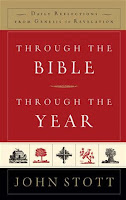Wisdom: Seeing the World through Covenant Eyes
Wisdom is usually the name given to the literature found in the books of Job, Ecclesiastes, Songs of Songs and Proverbs. Each are concerned with living life in a fruitful way given the challenges that life presents. Job teaches us that life is learning how to suffer. Ecclesiastes present life as a quest for meaning. Proverbs is a collection of truism on a life well lived. And Songs of Songs is about the essence of life, which is love. The Song of Songs is also the "sound track" of the Bible, given its nuptial melody from Genesis to Revelation.
Wisdom is sometimes referred to as "creation theology" as opposed to "covenant theology." This is an unnecessary and, I believe, an inaccurate distinction. All of the Bible is covenant theology because it all arises from the covenant bond(s) that God initiates with humanity, culminating in the new covenant in Jesus' blood. Wisdom is one of the varied literatures and concerns in the Bible which views creation from the perspective of the covenant. Other Ancient Near Eastern cultures have their sapiental traditions: proverbs, sayings, songs, and the like. However, in the Old Testament these common forms have a unique perspective. All wisdom literature is about life lived, but the wisdom found in the OT is about living in the world as a "gift" not a "given." The world and our life in it is a gift because we have come to know its Creator in Jesus Christ, our Lord. God is a generous God, who gave his only begotten Son. Creation bears the imprint of its Creator.
One helpful way to make this distinction between biblical and non-biblical wisdom is to compare Annie Dillard's Pilgrim at Tinker Creek with, say, Carl Sagan's Cosmos. Both are looking at the world, looking even in wonder and astonishment. But there is an interior understanding, an intimacy even, in Dillard's account that is missing in Sagan's. Same world but different meaning. Dillard sees the world as "gift". Sagan sees it as a "given" - billions and billions of years old and it will eventually burn out. Sagan's "world" is not sustained but rather self-sustaining. It is a disenchanted world and only merits speculation. However, the world of Dillard (and the Bible) is enchanted and merits adoration and praise.
When I look at your heavens, the work of your fingers,
the moon and the stars, which you have set in place,
what is man that you are mindful of him, and the son of man that you care for him?
Yet you have made him a little lower than the angels, and crowned him glory and honor.
You have given him dominion over the works of your hands; you have put all things under his feet....
O Lord, our Lord, how majestic is your name in all the earth!
Psalm 8:3-6, 9

No comments:
Post a Comment